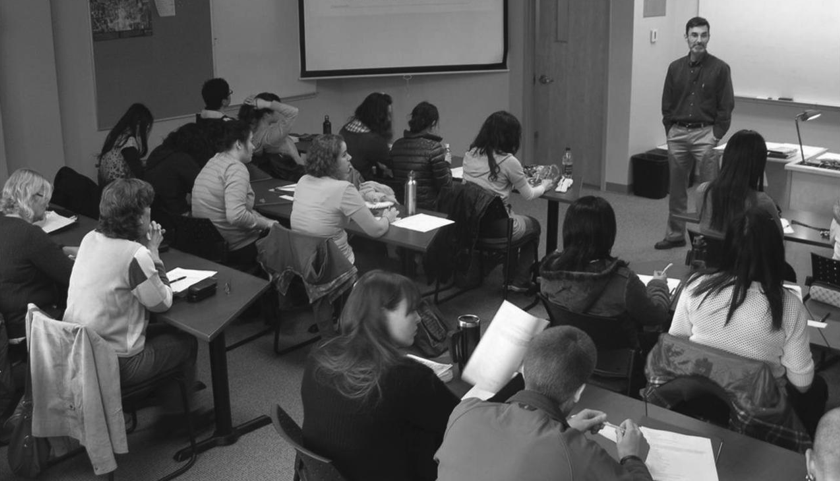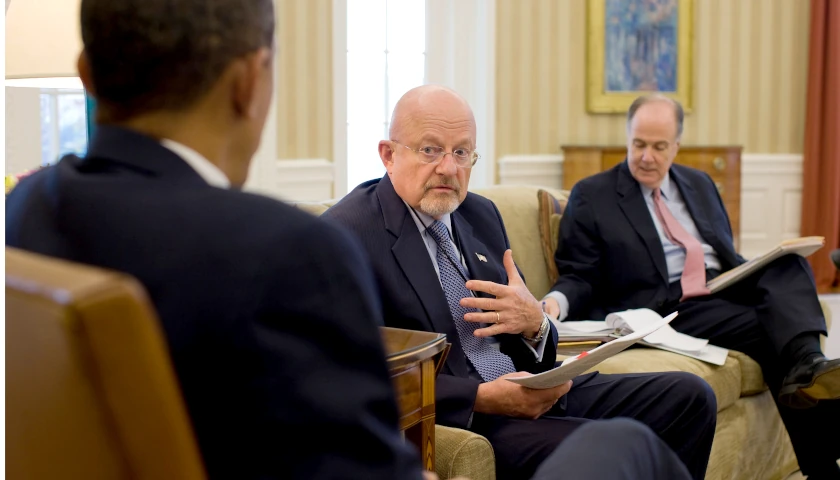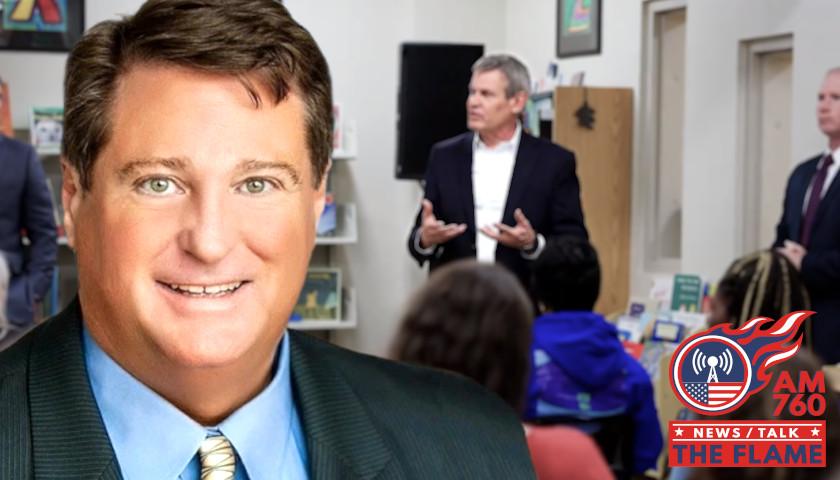Every politician in America is for the education of children. Common sense reminds us there is no “one size fits all” approach to public education, but we will hear ideas from politicians that will want to empower state and federal education agencies, rather than permitting those doing the work at the local level in districts to have more flexibility.
When polls are conducted, it is always other schools rather than the ones in our own community that people are unsatisfied with. That is fascinating. And it is what politicians and those spinning the message capitalize on with voters. We have to fix some school 50 miles away, so we punish the whole system and give more power to the state. Seems like an odd way to make policy.
The balance between accountability and responsibility imbedded in federal education policy and programs still dominate public policy. Dr. Allene Magill, Executive Director of our sister organization, the Professional Association of Georgia Educators points out that the: “measure, pressure and punish model sets our students, teachers and schools up for failure.” She is right.
Public schools have an incredible product and unparalleled success and need to tell that story. However, they have to be perfect every single day. For example, if a child is let off at a wrong bus stop one time, it condemns an entire system. That is a problem most private schools do not have to tackle. In addition, teachers in private schools know that they have the support of the administration and the parents. If you could give public school teachers the same level of support and they would also thrive. Likewise, we must explore ways to give school districts more freedom from state and federal control.
Education Historian (and liberal scholar) Diane Ravitch remarked: “Presidents Bush and Obama and the Congress have bet billions of dollars—both federal and state– on a strategy of testing, accountability, and choice.” Instead, what if we had passed legislation that allowed districts to seek exemptions from all state statutes, rules, and policies except those that deal with electing school boards, public meetings and records, financial disclosure, conflict-of-interest, and sunshine laws? In return the district would establish performance goals, measures to assess progress, and a time frame for accomplishing the goals and each community would look different and innovation would thrive. Sounds like pretty conservative education policy to me.
I have little hope that Secretary of Education Betsy DeVos can navigate the swamp of Washington, DC any better than her predecessors. It was former President Barack Obama that made news when he recognized the fact that public schools needed to cut back on testing to only 2% per year. He seems to have conveniently overlooked the fact that testing increased on his watch while he was President. Forget all that you know, it is election year.
Tim Farley, principal of an elementary/middle school in upstate New York wrote that the Obama testing policy of 2% cap on time spent on standardized testing would actually increase the time spent testing students. Farley asks: “What does that actually mean? In New York we have 180 school days and an average school day runs about 6.5 hours. If one does the math that’s 180 x 6.5 x 2% = 23.4 hours of testing. So, by law, we cannot exceed 23.4 hours of standardized testing in grades 3–8.
Farley continues: “This begs the question — How much time do kids in grades 3–8 spend on the state tests in English/Language Arts and math? If you are a general education student, you will spend roughly nine hours in a testing room for both the ELA and math tests. If you are a student with a learning disability (SWD), and you have a testing accommodation of “double time,” you get to sit in a testing location for eighteen hours. As insane as that seems, it is still 5.4 hours short of the time allowed by law. A 2% cap isn’t a step forward; it’s a giant leap backward.”
Farley concludes: “How much testing is too much? I don’t know the magic number that will give the state education departments and the U.S. Department of Education the data they supposedly need in order to determine the effectiveness of the schools, but I do know that nine hours of testing is too much for a nine-year-old, eighteen hours is abusive for nine-year-olds with a learning disability, and 23.4 hours of testing for a child at any age is criminal.”
We have been fortunate to have a great relationship with politicians on both sides of the political aisle here in Tennessee. They understand that our focus will be on educators and children. No educator I have ever met was afraid of being accountable for the work they do in the classroom on behalf of children. But most educators will agree the “measure, pressure and punish model” is not working. Yes, we have had incredible gains on tests, but can researchers honestly say that it is a result of “a strategy of testing, and increased accountability?”
It is time to for policymakers to deliver for communities the promise of locally-controlled public education for all children. Emmett McGroarty and Jane Robbins in a recent article, “Republicans and the lost promise of local control in education” floated the “radical idea of returning to the Constitution” on education issues. That is a debate worth having.
##
JC Bowman is the Executive Director of Professional Educators of Tennessee, a non-partisan teacher association headquartered in Nashville, Tennessee. Permission to reprint in whole or in part is hereby granted, provided that the author and the association are properly cited. Follow him on social media via Twitter at @jcbowman.






Is public education necessary? The answer is obvious: it was not needed then, and it is certainly not needed today. Schools are necessary, but they can be created by free enterprise today as they were before the public school movement achieved its fraudulent state monopoly in education. Subject education to the same competitive market forces that other goods and services are subjected to, and we shall see far better education at much lower overall cost. Instead of a �crusade against ignorance� to reform the world, we shall have schools capable of performing the limited and practical functions that schools were originally created to perform. � Samuel L. Blumenfeld, Is Public Education Necessary?
Why should I as a Christian be forced to pay for an atheist school system? Why can’t Christians have their own Christian schools, and Jews have their own schools, and Muslims have their own schools and atheists have their own schools (that other’s do not have to pay for)? End compulsory funding of government schools.
“Likewise, we must explore ways to give school districts more freedom from state and federal control.”
That is really quite simple. Stop taking Uncle Sugar’s money and all that nasty Goals2000/NCLB/Common Core/Renting Utah Test Questions/Pearson data mining all goes away.
The local educators however must rely upon the state and its constitution for the requirement for government-sponsored education and state law for forced attendance.
Our state legislature, specifically the education committees are already accustomed to ignoring Jane Robbins. When you are competing against Bill Gates’ pocketbook, which lobbyist do you expect to win?
Cutting the federal money pipeline is long overdue. This trend began with the National Defense Education Act of 1958, a direct response to the Soviet launch of the satellite Sputnik and increased in the ’80’s with the Nation at Risk report. That’s most 60 years of dependence on federal dollars. Cashed strapped states and districts have gladly taken the handout. Sadly, the purse strings attached haven’t always improved education. In fact, scores dipped after that first phase of federal dollars. There’s a lot to what you propose but like any addiction, coming clean may prove difficult.
I know that name !
Looking at numbers, the dependence is growing. More so in the urban areas. We have a real urban/rural divide. That is a discussion that needs to happen as well.
It is ironic that you quote Diane Ravitch! She was a self professed early proponent of testing/accountability until the crazy hit the fan. Crazy means I can get into college by taking a three hour test yet it takes sixteen hours to tell me what a ninth grader knows. Maybe we all need to be a bit liberal or commonsensical or both!